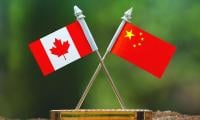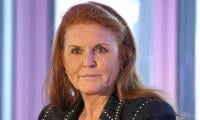Health equity
On December 12, 2012, the UN General Assembly (UNGA) endorsed a resolution urging countries to accelerate progress towards universal health coverage – the idea that everyone, everywhere, should have access to quality, affordable healthcare – as an essential priority for international development.
On December 12, 2017, the UN proclaimed ‘December 12’ as International Universal Health Coverage Day by resolution 72/138. ‘Provision of universal health coverage’ has also been included in Sustainable Development Goals (SDGs) for the 2015-2030 period.
International Universal Health Coverage Day aims to raise awareness regarding universal health coverage. Health advocates share the stories of millions who are still waiting for health services, discuss what has been achieved so far, call on leaders to make bigger and smarter investments in health, and encourage diverse groups to make commitments to help move the world closer to universal health coverage by 2030.
At the 2019 United Nations high-level meeting, world leaders recognised this right when they committed to ensuring that by 2030 all people would receive quality health services without experiencing financial hardships in their countries.
This year’s theme is ‘Leave no one’s health behind: invest in health systems for all’. The motto emphasise ‘health equity’, which is more relevant now in the context of the Covid-19 pandemic where ‘vaccine capitalism’ by rich countries monopolised this global good to the disadvantage of the less affluent.
Covid-19 has severely disrupted progress in all areas of health and reminded us of the urgent need for coordinated action and strong health systems. Even before the pandemic, the number of people with catastrophic health spending was on the rise, the pandemic has only aggravated this trend.
Service disruptions, among many others, remind us of the extent to which all health agendas must be integrated with broader efforts to build strong health systems that are more equitable, holistic and people-centred.
The universal healthcare agenda can well address the barriers to access and improve the quality of care across all areas by avoiding catastrophic spending, ensuring more integrated coverage and encouraging governments to deliver services based on the principles of human rights and equity.
For generating a big health impact, we must prioritise the needs of the most vulnerable populations – the poor and the marginalised – and advance gender equality by protecting women’s and girls’ health in a cohesive manner.
There are various models of healthcare financing in the world. While each model is distinct, most countries don’t adhere strictly to a single model; most create their hybrids.
Many countries have a single-payer healthcare system that is universal and state-funded. The government removes all competition in the market to keep costs low and standardise benefits. The health ministry controls what healthcare providers do and what they charge. Funded by taxes, there are no out-of-pocket fees for patients or any cost-sharing. This system is used by the UK, Russia, the UAE, Spain, Hong Kong and other countries.
Another healthcare financing system is where employers and employees are responsible for funding their health insurance system through ‘sickness funds’ created by payroll deductions. Providers and hospitals are generally private, though insurers are public. Some countries – like France and Korea – havea single insurer system. Other countries, like Germany and the Czech Republic, have multiple competing insurers.
The third model is an out-of-pocket system which is the most common in developing countries where there aren’t enough financial resources to create a medical system like the three mentioned above. In this model, patients must pay for their procedures out of pocket. It is used by Congo, Ethiopia and is primarily the least patient-friendly. The fourth popular model is driven by private-public providers, but payments come from a government-run insurance programme that every citizen pays into. Pakistan’s healthcare model (in practice in KP and Punjab) is more on these lines. The national health insurance model is universal insurance that doesn’t make profit.
Pakistan is in the initial phase of fulfilling key obligations to universal health coverage and has shown seriousness; the same focus is required for improved health governance, meritocracy and quality improvement as well to attain maximum dividends. Our health system is still at the tail end of the developed health system. If we look at the numbers, we will find that we don’t stand anywhere in the first 50. The reasons for this sorry state are chronic misgovernance and other managerial, financial and implementation issues.
All successive regimes have their share in the undue neglect of the health sector. Our budgetary allocation for healthcare couldn’t rise above one percent. This apathy to the health sector dented public trust in the services provided by state-run facilities and the majority tilted towards the private sector. This big patient thrust on the private sector has its toll too, resulting in high service charges, poor quality and malpractices. Unfortunately, the health sector regulatory mechanism, especially the private one, is far from satisfactory for obvious reasons, hence the plight continued.
Amidst all daunting challenges, Pakistan’s commitment to universal health coverage offers a ray of hope for the health sector and poor patients. We are slowly getting on track but have to be ‘universal’ in its true sense. The much-awaited 2023 UN high-level meeting on universal health coverage will be a significant opportunity for heads of state and governments to reaffirm their commitment to health for all and to recognise its role as an overarching umbrella for SDG3.
It is important that health advocates and related organisations develop persuading advocacy strategies, frame catchy messages and deploy recognised champions around to better utilise the opportunity for the global good.
‘Health’ is a basic human right above partisan lines, and this spirit should be owned and steered by everyone. If anything can better contribute to national development, it is improved health of its citizens.
Health is wealth.
The writer is an internationally recognised health and development expert, who
has had an illustrious career with UN, USAID, World Bank, Gates Foundation, and various governments.
Email: Nadeemjan77@hotmail.com
-
 China Cuts Anti-dumping Duties On Canadian Oil Imports After Final Trade Decision
China Cuts Anti-dumping Duties On Canadian Oil Imports After Final Trade Decision -
 Prince Harry, Meghan Markle Make Major Change To Strategy To Please Royal Family
Prince Harry, Meghan Markle Make Major Change To Strategy To Please Royal Family -
 Chester Bennington’s Mental Health Story And Lasting Legacy
Chester Bennington’s Mental Health Story And Lasting Legacy -
 John Cusack Gears Up To Give Fans Exciting Surprise On Late-night Television
John Cusack Gears Up To Give Fans Exciting Surprise On Late-night Television -
 Yerin Ha Opens Up About Shocking Diagnosis Post ‘Bridgerton’ Season 4
Yerin Ha Opens Up About Shocking Diagnosis Post ‘Bridgerton’ Season 4 -
 Meghan Markle, Harry Leave King Charles, Prince William Furious With Latest Move
Meghan Markle, Harry Leave King Charles, Prince William Furious With Latest Move -
 NASA Announces New Artemis Moon Mission Aimed At Expanding Astronauts’ Exploration Efforts
NASA Announces New Artemis Moon Mission Aimed At Expanding Astronauts’ Exploration Efforts -
 Everything To Know About Justin Bieber's Facial Paralysis
Everything To Know About Justin Bieber's Facial Paralysis -
 Morgan Stanley Predicts AI To Replace Tasks Not Workers
Morgan Stanley Predicts AI To Replace Tasks Not Workers -
 Anthropic Dario Amodei Calls White House Response ‘retaliatory’ In AI Safety Dispute
Anthropic Dario Amodei Calls White House Response ‘retaliatory’ In AI Safety Dispute -
 Tia Mowry Breaks Silence On Angelina Jolie Asking 'unbelievably' Personal Question: 'Wilder'
Tia Mowry Breaks Silence On Angelina Jolie Asking 'unbelievably' Personal Question: 'Wilder' -
 Savannah Guthrie Speculations 'sadly' Coming True About Mother Nancy
Savannah Guthrie Speculations 'sadly' Coming True About Mother Nancy -
 Trump Administration Warns Of Slow Payouts For Tariff Refunds Amid Intensifying Trade Disputes
Trump Administration Warns Of Slow Payouts For Tariff Refunds Amid Intensifying Trade Disputes -
 Princess Beatrice 'far From Comfortable' After Father Andrew's Arrest
Princess Beatrice 'far From Comfortable' After Father Andrew's Arrest -
 Sarah Ferguson’s Dual Cancer Journey
Sarah Ferguson’s Dual Cancer Journey -
 GTA 6 Security: Rockstar Blocks Leaks Ahead Of Launch
GTA 6 Security: Rockstar Blocks Leaks Ahead Of Launch



